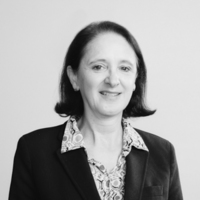
Claudia H . Yamu
Claudia is Professor of Urban Analytics at Oslo Metropolitan University in the Department of Civil Engineering and Energy Technology, Norway.
She dedicates her research to the analysis of socioeconomic, past and present spatial performances of cities and their metropolitan areas to sketch, simulate and analyze urban sustainable futures as outlined by the UN Sustainable Development Goals (SDGs). There is an urgency for the future city given the precarious situation of climate change and a rapidly growing worldwide population. For designing the future city and to ensure quality of life, she evaluates and rethinks transport & street networks, land use & density and people’s behaviour in public space. She applies different approaches and develops methods and operational analysis tools. Her quantitative approach is complemented by a qualitative investigation allowing her for a holistic analysis and the development of strategic urban planning and design options. She connects her research to debates in academia and practice such as sustainable cities and regions, complexity science, fractal cities, smart cities, healthy and safe cities, low energy cities, compact cities, the just city, and urban morphogenesis. To her, the just, sustainable and socio-economic successful city needs as co-creators citizens and informed decision making from different stakeholders. Thus, her expertise includes further participatory planning and technology. Her research is connected to practice and urban policies. This as urban policies influence the built environment, and vice versa, the generative power of the built environment affects urban policies. Her work is driven by the credo ‘Help planners plan and help decision makers make informed decisions’.
Expertise: urban informatics, space syntax, digital twins, tool and method development, mixed methods, participatory planning, and decision support connected to urban policies.
She dedicates her research to the analysis of socioeconomic, past and present spatial performances of cities and their metropolitan areas to sketch, simulate and analyze urban sustainable futures as outlined by the UN Sustainable Development Goals (SDGs). There is an urgency for the future city given the precarious situation of climate change and a rapidly growing worldwide population. For designing the future city and to ensure quality of life, she evaluates and rethinks transport & street networks, land use & density and people’s behaviour in public space. She applies different approaches and develops methods and operational analysis tools. Her quantitative approach is complemented by a qualitative investigation allowing her for a holistic analysis and the development of strategic urban planning and design options. She connects her research to debates in academia and practice such as sustainable cities and regions, complexity science, fractal cities, smart cities, healthy and safe cities, low energy cities, compact cities, the just city, and urban morphogenesis. To her, the just, sustainable and socio-economic successful city needs as co-creators citizens and informed decision making from different stakeholders. Thus, her expertise includes further participatory planning and technology. Her research is connected to practice and urban policies. This as urban policies influence the built environment, and vice versa, the generative power of the built environment affects urban policies. Her work is driven by the credo ‘Help planners plan and help decision makers make informed decisions’.
Expertise: urban informatics, space syntax, digital twins, tool and method development, mixed methods, participatory planning, and decision support connected to urban policies.
less
Related Authors
Hani RAZAVI FARD
Politecnico di Torino
Lewis Winks
University of Exeter
Marco Trisciuoglio
Politecnico di Torino
kawthar rayyan
Virginia Tech
Dr. Nahith Al-Qemaqchi
Cihan University
Jason Wen Yau Lee
Duke-NUS Graduate Medical School
Prof. Dr. Susan Harris-Huemmert
PH Ludwigsburg
Gabriele Salciute Civiliene
King's College London
Mujesira Bakovic
Middle East Technical University
InterestsView All (13)










Uploads
Papers by Claudia H . Yamu
space. Building on concepts of capability and affordance, walkability is herein conceptualized in terms of the effect of affordances incorporated into the built environment on individuals’ propensity to walk for different purposes. The methodological framework aims to capture the characteristics of walkability across scales as the product of the intrinsic and extrinsic properties of an urban setting.
space. Building on concepts of capability and affordance, walkability is herein conceptualized in terms of the effect of affordances incorporated into the built environment on individuals’ propensity to walk for different purposes. The methodological framework aims to capture the characteristics of walkability across scales as the product of the intrinsic and extrinsic properties of an urban setting.